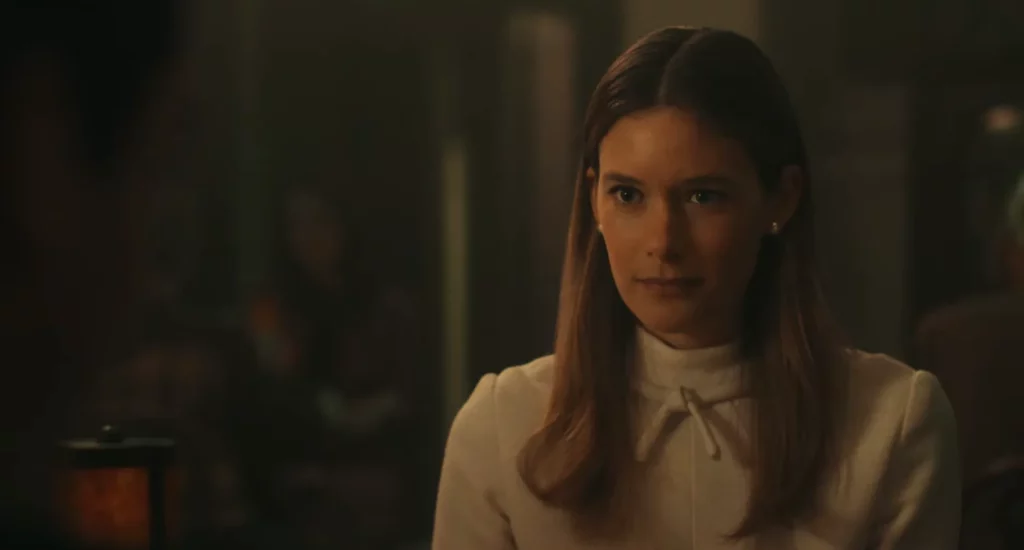Hanks for the memories
It’s a known fact: Tom Hanks, the thespian par excellence, has had his share of lackluster performances. Yes, it’s rare, but they exist: The colossal dud Bonfire of the Vanities or the obscure comedy, Volunteers, where he embraces a Katharine Hepburn-esque transatlantic accent. And he’s not entirely grown out of misfires: In the 21st century, I found him miscast and tonally flat in the gorgeous Road to Perdition, a movie he was supposedly passionate about making.
That said, Tom Hanks is perhaps the most broadly accomplished actor of his generation, who almost always elevates the material he works with. I wondered if something as cloying as “old man who needs to discover the meaning of life via quirky neighbors” might be a bridge too far for him, another rare L. But no, he pulls through, and with flying colors, in A Man Called Otto. His charismatic turn in the titular role lifts the film from the morass of “poignant indies,” transforming it into an enjoyable, even good, piece of cinema.

The premise of A Man Called Otto, adapted from the bestselling A Man Called Ove by Fredrick Backman (and a remake of a 2015 Swedish film I haven’t seen), is darker than you might expect from the “book club film adaptation” marketing. Hanks’ Otto is a curmudgeonly older man whom the audience will recognize as slightly autistic. The film’s opening scene is Otto purchasing a length of rope in a hardware store, arguing with the cashier about pedantic pricing issues. But the film takes a dark twist, quickly, when we see what the rope is for when he gets home: Otto intends to use it to hang himself.
His suicide attempt is disrupted by his new neighbors, a raucous yet endearing family led by their mother, Marisol (Mariana Treviño), a pregnant Mexican immigrant and mother of two. She asks for help settling into her new home, and Otto, somewhat reluctantly, steps in.

As the film unfolds, Otto and Marisol form a tenuous bond, offering both the audience and Marisol a deeper understanding of Otto’s complex character. In flashbacks, Hanks’s dough-faced son Truman plays a younger Otto, which is a nice touch. (Frankly, it was news to me that Hanks has a third son beyond Colin and Chet.) After being turned away from the military due to a heart condition, he meets the enchanting Sonya (Rachel Keller), a quintessential dead wife: stunning, noble, deeply kind, and devoted to our protagonist. Their relationship echoes the lovable couple from the opening of Up, as the pair fail to have a kid and the wife dies, and so we witness Otto’s grief build in layers.
The film progresses with Otto’s repeated suicide attempts constantly interrupted by some new call to action, compelling him to discover reserves of kindness or strength within himself as he helps out the community.

While this structure is kind of silly on the outside — constant perfectly-timed interruptions of Otto’s suicide attempts — it actually works pretty well metaphorically. Otto, teetering on the edge of despair and isolation, finds healing and a renewed sense of purpose through the community that surrounds him just when he’s on the brink of giving up.
I won’t deny that the film is occasionally saccharine, especially towards the ending. And it’s possible those with genuine suicidal ideation may not fully resonate with Otto’s experience, how he processes trauma and interacts with the world in a state of depression. But it’s touching and even funny from moment to moment, largely due to Hanks’s immense performance. The way he brings to life a character with thorny psychological dynamics, giving an air of authenticity (not to mention screen presence) and overcoming the narrative contrivances, is a testament to his generational screen talent. He don’t miss often.
- Review Series: Tom Hanks
- Review Series: 2022: Year in Film
Is It Good?
Good (5/8)
Follow Dan on Letterboxd or Twitter. Join the Discord for updates and discussion.


2 replies on “A Man Called Otto (2022)”
I am sure I am not the first to say you are VERY WRONG about Road to Perdition, but that’s okay.
I’m sure “quirky suicide attempts” aren’t for all tastes, but if the trailers had mentioned “Tom Hanks constantly tries to kill himself, it’s funny while it’s sad” I would’ve been significantly more likely to make an effort to see it than the thing I mainly remember from those trailers, that is, “cranky old man is vocally annoyed that a dog pees–just pees–on the sidewalk.” Might have to catch up with it.
I really should give Road to Perdition another try and see if I can convince myself it’s better than “fine.” I like your take that it’s Hanks is playing against his type in artful and challenging ways as opposed to just miscast.